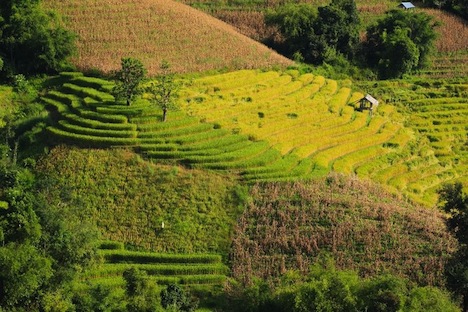Everyone in Bangkok awoke Tuesday morning to the news that the Royal Thai Army had declared martial law, including the censorship of certain news outlets. ![]()
It’s not a coup, however, according to the claims of commander-in-chief Prayuth Chan-ocha (pictured above), who ordered the move, and who called for calm in a public announcement later in the day:
The army is determined to restore peace and order in our beloved country as quickly as possible. I request that people from all sides stop their movements so that all can quickly enter the process that will bring about a sustainable solution to the problems the nation is currently facing. Announcements will be made later on to provide details for the rules and regulations under martial law. I urge the public to stay calm and continue their daily activities and work normally. The army is determined to quickly ease the situation.
No one really knows what is happening right now in Thailand, but it’s a country with a history of coups and coup attempts. So the latest efforts of the creepily-named Peace and Order Maintaining Command (POMC) that Prayuth leads, on the basis of laws that undermine the rule of law and democracy in the name of military-imposed order, is ominous — even if Thai soldiers have so far taken a light footprint on the ground.
* * * * *
RELATED: What protesters in Ukraine and Thailand are getting wrong
* * * * *
Prayuth, since assuming the commander-in-chief post in 2010, has generally been unenthusiastic about intervening in Thailand’s politics — he has previously relented from intervention, even during the tense days leading to February’s elections. Like most military officers, however, he’s no fan of the regime of former prime minister Yingluck Shinawatra who, until her court-ordered removal earlier this month, enjoyed a democratic mandate for government. Moreover, Prayuth is known as a hardliner within the military elite, and there’s no indication that he’s as neutral as he claims to be.
With the imposition of martial law, Thailand’s politics could quickly deteriorate. That’s because the Thai armed forces have a long reputation of favoring the opposition Phak Prachathipat (Democrat Party, พรรคประชาธิปัตย์).
Earlier this month, it seemed as if Thai affairs were back on track after February elections, boycotted by the opposition, delivered a hollow victory to Yingluck. Her administration had agreed with Thailand’s electoral commission for a new round of elections to be held on July 20, and the Democrats were even considering contesting them. Continue reading Why you should believe the worst about Thailand’s coup

